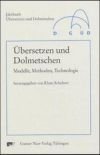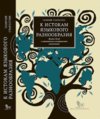
-
 Anglický jazyk
Anglický jazyk
An Integral Analysis of Martin Scorsese´s 'Taxi Driver'
Autor: Daniel Roth
Seminar paper from the year 2006 in the subject English Language and Literature Studies - Comparative Literature, grade: 1,5, University of Trier, course: The Films of Martin Scorsese, language: English, abstract: Introduction
Starting point for my...
Viac o knihe
Na objednávku
16.65 €
bežná cena: 18.50 €
O knihe
Seminar paper from the year 2006 in the subject English Language and Literature Studies - Comparative Literature, grade: 1,5, University of Trier, course: The Films of Martin Scorsese, language: English, abstract: Introduction
Starting point for my term paper was the question of how to approach such a complex work of art, since I had no previous experience or theoretical knowledge in the analysis of films. It quickly dawned on me that a literal analysis of the film¿s plot and its characters under particular consideration of the author¿s intention, that I was used to in the field of literary studies, would be dysfunctional, since there were too many creative sources involved in the genesis of a film. To further complicate matters, I became in my search for appropriate secondary literature quickly acquainted with some post-modern scholars such as Robin Wood, who sees Paul Schrader as a
"neo-fascist", "whose films amount to a systematic
repudiation of all minority groups and any possible social alternative, in order to re-assert a quasi-mystical sense of male supremacy, heterosexual superiority, and a total spurious "transcendence". [...] the film's interest is inseparable from its sense of confusion, its failure to define a coherent attitude towards its protagonist." (Wood)
Since I was convinced that there was more to Taxi Driver than its "sense of confusion" and, that a coherent, clear analysis was possible, though coming to a definite conclusion might not be possible due to its character¿s ambivalence, I intended my term paper to be a step out of this academic mingling of terms by the use of an integral approach. I use the word integral in a Wilberian sense, which is "to include as many perspectives, styles, and methodologies as possible within a coherent view of [a] topic". ("integral thought" -Wikipedia) Part one of my paper is generally a brief summary of the main underlying motives that I identified in the secondary literature on Taxi Driver. These motives are: Travis Bickle¿s ambivalence, the creative tension between Paul Schrader and Martin Scorsese, cinematic and literary influences on Taxi Driver as well as Taxi Driver¿s influences. Part two comprises a look at Taxi Driver from three fundamental perspectives - the psychological, the social and the cultural- and is introduced by the question "How to approach Taxi Driver?", which is basically
a reflection on my original dilemma.
- Vydavateľstvo: GRIN Verlag
- Rok vydania: 2012
- Formát: Paperback
- Rozmer: 210 x 148 mm
- Jazyk: Anglický jazyk
- ISBN: 9783656130680




 Nemecký jazyk
Nemecký jazyk 
 Ruský jazyk
Ruský jazyk 




